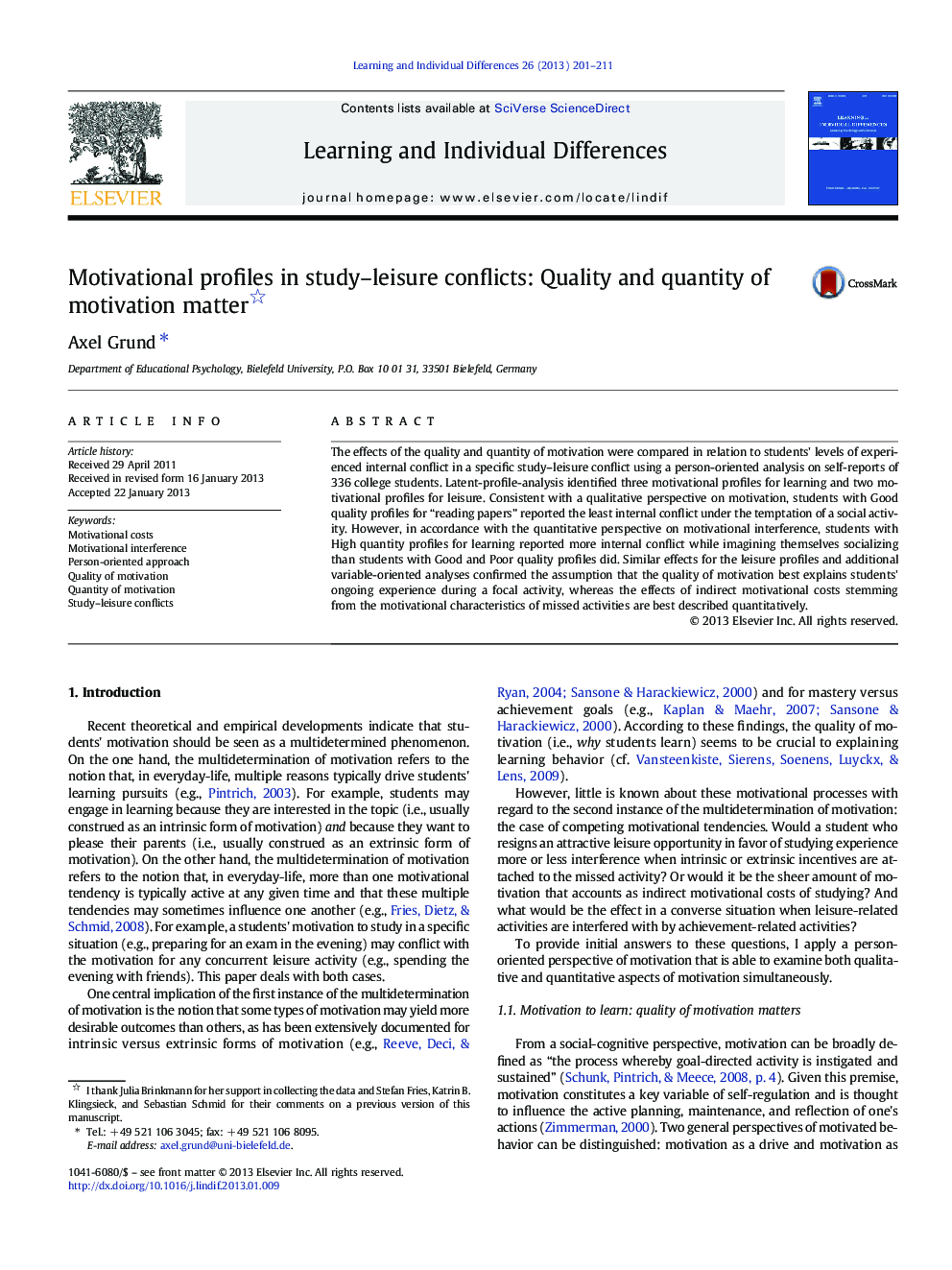| Article ID | Journal | Published Year | Pages | File Type |
|---|---|---|---|---|
| 364844 | Learning and Individual Differences | 2013 | 11 Pages |
The effects of the quality and quantity of motivation were compared in relation to students' levels of experienced internal conflict in a specific study–leisure conflict using a person-oriented analysis on self-reports of 336 college students. Latent-profile-analysis identified three motivational profiles for learning and two motivational profiles for leisure. Consistent with a qualitative perspective on motivation, students with Good quality profiles for “reading papers” reported the least internal conflict under the temptation of a social activity. However, in accordance with the quantitative perspective on motivational interference, students with High quantity profiles for learning reported more internal conflict while imagining themselves socializing than students with Good and Poor quality profiles did. Similar effects for the leisure profiles and additional variable-oriented analyses confirmed the assumption that the quality of motivation best explains students' ongoing experience during a focal activity, whereas the effects of indirect motivational costs stemming from the motivational characteristics of missed activities are best described quantitatively.
► University students' motivational profiles were analyzed in study–leisure conflicts. ► Internal conflict experience during learning was highest for learners with Poor quality profiles. ► Quality of motivation best describes how successful learning processes are regulated. ► Quantity of motivation best describes effects of indirect motivational costs. ► Person-oriented and variable-oriented findings complemented each other.
